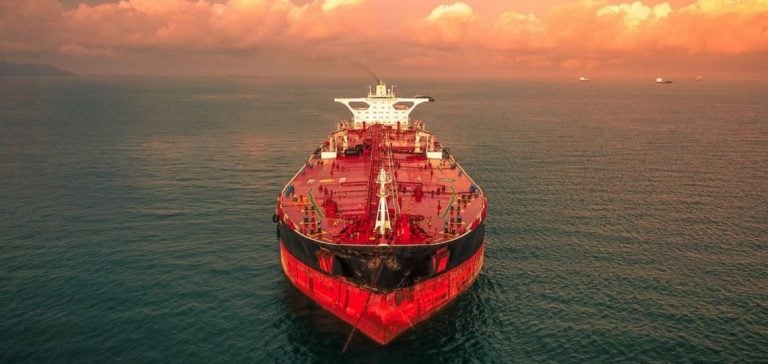Iran Exports Its First Crude Cargo Outside the Persian Gulf Before Israeli Retaliation
Iran exported its first crude cargo outside the Persian Gulf, according to satellite images and local reports. This move marks a significant expansion of the country’s export options as Tehran faces threats of retaliatory strikes by Israel targeting oil facilities.
A Very Large Crude Carrier (VLCC) capable of carrying up to 2 million barrels of crude departed the offshore Single Buoy Mooring (SBM) at Iran’s long-delayed Jask oil terminal in the Gulf of Oman between September 19 and September 21, according to images taken by the EU’s Sentinel 2 satellite, after apparently docking at the terminal 10 days previously.
Iran has been working for years to complete the Jask terminal to allow the sanctions-hit country to export oil directly from the Sea of Oman, bypassing the chokepoint of the Strait of Hormuz. Currently, approximately 90% of Iran’s crude is exported from Kharg Island in the Persian Gulf.
Located 55 km west of Jask Port, the $2 billion export project was officially inaugurated last year and connected to a 1,000-km, 42-inch pipeline capable of transporting heavy and medium crude oil from Goureh in the Bushehr province. The 1 million barrels per day (b/d) terminal was to start operations with an initial storage capacity of 10 million barrels. However, technical faults, political setbacks, and crude theft sabotage have delayed the completion of the terminal and the first shipments from the SBM.
Iran’s Hamihan newspaper reported on October 18, without citing sources, that Iran exported 1 million barrels of oil via the Jask terminal at the end of September. It was not clear if the loading was a trial loading or if there have been further delays in boosting oil flows to the terminal.
The latest satellite imagery shows that 11 of the terminal’s 20 crude storage tanks are now complete, amounting to a storage capacity of 5.5 million barrels. Iran’s Ministry of Petroleum was not immediately available to comment on the report.
According to the commodity tracking company Kpler, the Iranian-owned Dune VLCC picked up a 2 million barrel cargo from Jask on October 2, marking the first lifting from the terminal. The Iranian-sanctioned vessel was last seen east of Singapore on October 11 heading toward China after passing through the Malacca Straits with a cargo of Iranian crude, according to S&P Global Commodities at Sea.
The context of this export comes as global oil markets remain on tenterhooks over the expected Israeli retaliation for Iran’s missile attack on October 1.
Fears of a major escalation in the conflict affecting regional oil supplies were sparked on October 3 when U.S. President Joe Biden stated that the U.S. was discussing potential attacks on Iranian oil facilities with Israel. Iran’s military head responded by saying Tehran would hit back harder at Israel with a “stronger response” if attacked. However, crude prices collapsed by over 5% this week after a media report indicated that Israel would avoid striking Iranian nuclear and oil sites, easing fears of a potential supply disruption.
Historically, Iran has threatened global oil markets by attacking shipping and laying mines in the Strait of Hormuz, through which almost 18 million b/d of crude and products transited during the first half of 2024. However, analysts see any major shutdown of oil flows through the chokepoint as unlikely, as all of Iran’s oil export flow via the chokepoint and the Jask terminal itself would also likely still be affected given its proximity to the waterway.
In the immediate aftermath of Iran’s October 1 attack on Israel, Iran’s crude export loadings appeared to slump well below normal levels, according to tanker tracking data, in a move seen by market watchers as Tehran preparing for a retaliatory strike by Israel on Kharg Island.
Since then, crude loadings from Iran have risen to average 1.3 million b/d in the week to October 14, according to the latest preliminary observed and estimated tanker movements in Commodities at Sea.
Overall Iranian seaborne crude loadings, including cargoes allocated to domestic ports and anchorage, averaged 1.73 million b/d during Q3 2024, consistent with both Q2 2024 and the first half of the year, according to CAS data.
Iran allocated almost half of its Q3 crude loadings to Southeast Asia, underscoring the region’s pivotal role in facilitating Iranian crude to China. Typically, these barrels undergo blending and are subsequently reclassified as Malaysian or Singaporean-origin before reloading aboard vessels bound for China.






















